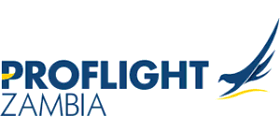 Aviation industry pivotal to economic growth
Aviation industry pivotal to economic growth
The aviation industry has been among the hardest hit by COVID-19. But the same industry brought to a halt by this global pandemic has the potential to take the world past it. Owing to its connectedness and interdependencies with other sectors, the aviation sector could prove to be a pivotal area for economic recovery.
While it is easy to overlook Zambia’s aviation industry because of its size, one has to look at the industry as not only being an industry itself; but also as an enabler of other industries, such as trade and commerce, tourism and hospitality.
Economies thrive on producing, servicing, and moving. Airlines represent a fast and flexible transportation network, crossing land and sea around the world. Businesses need airlines to win new customers, deliver their products, service their products, and prospect new opportunities. Individuals need airlines for leisure travel or to stay connected with geographically dispersed families.
The impact of the pandemic has been apparent; hotels and lodges have had to scale down operations or at worse close entirely, movement of goods and services is at all-time low. All these put together paint a picture of an economic downturn that not only hurts businesses and individuals but the Zambian economy.
Proflight, the leading airline in Zambia, has since the resumption of local air travel and the reopening of South Africa’s borders played a crucial role in opening up the country to the rest of the world and linking businesses and individual travellers between its Lusaka hub to other local and regional business and tourism centres such as Ndola, Livingstone, Solwezi and Mfuwe, as well as Johannesburg.
“Connecting Zambia to the world through our Lusaka hub is of vital importance to the regional economy, especially in these challenging times. With the travel confidence we have built in the past months, we are steadily rebuilding the economic links severed by COVID-19,” said Proflight Corporate Director Chitalu Kabalika.
Aviation is not just vital to Zambia’s recovery alone. Whether it is through travel and trade into Lusaka and then onward in the country, local aviation is intrinsic to national and regional economies, and to a great extent the economy of much of the Southern Africa region.
Mr Kabalika added that if the government is serious about campaigns like ‘Explore Zambia’ or ‘Open Zambia’ that aim to showcase what the country has to offer then there is a need to have immediate and genuine discussions with the aviation sector about the future of the sector and policies needed to spur its growth.
Mr Kabalika also reiterated the safety measures that the airline has put in place.
“To ease fear and anxiety in customers, Proflight has put in place safety measures on board all aircraft; we hope this will help to provide confidence to passengers looking to travel with us in the future.
“As we all adapt to this new environment, I can assure you that all Proflight staff, both on the ground and on board, are committed to ensuring our passengers the highest levels of health and safety.”
Proflight has put in place a range of measures to ensure that flights are safe for both passengers and staff. Face masks are mandatory for both passengers and crew when boarding and during the flight. Rigorous aircraft cleaning procedures are standard, such as the disinfection of all surfaces in contact with customers such as armrests, tables, and screens.
Domestic tourism has restarted and is helping to mitigate the impact on jobs and businesses in Proflight’s destinations like Livingstone, Mfuwe and Ndola. However, Mr Kabalika notes, real recovery will be possible only when international tourism returns. This requires regional and global co-operation and evidence-based solutions so travel restrictions can be safely lifted and get back to pre-COVID levels.
The challenge is great, but so too is the price of not having a reconnected and open world.
